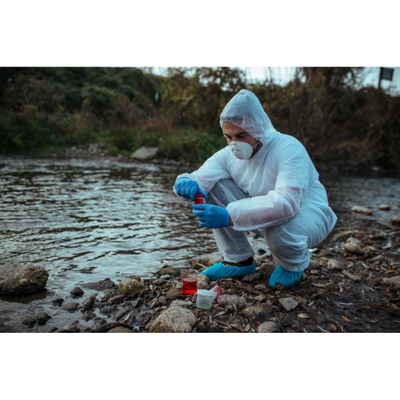- 1-905-452-8193
- Contact Us
- Member Login
- Get Listed Today
- 220,911 members

Marines, their families, and civilian workers that lived and worked at Camp Lejeune during the time period of 1953-1987 may have bathed, drank, cooked, and cleaned with toxic water. Nothing was done to address this issue for many years. Finally, action was taken in 1985 to begin shutting down the wells that were supplying the contaminated water to the base. As a result, many veterans, their family members, and others that had business on the military base were exposed to these toxic chemicals in the water supply, known to cause severe health conditions, including cancer.
It was determined that the water at the United States Marine Corps Base Camp Lejeune, located in North Carolina, was toxic for many years. Some of the compounds found in the water at the base included volatile organic compounds or VOCs, vinyl chloride or VC, tetrachloroethylene, trichloroethylene or TCE, perchloroethylene or PCE, and benzene. These chemicals is considered dangerous to come into contact with, let alone consume, as they are known carcinogens and detrimental to human health. Additionally, these chemicals were found at levels far higher than deemed safe. It’s suspected that the base water supply at different wells was impacted by an off-base dry cleaner, storage, and disposal tank leaks, as well as poor disposal methods for cleaning solvents used to clean equipment and weapons on the base.
One of the most frustrating things for those exposed to the toxic water at Camp Lejeune is that there is such a long list of symptoms to be on the lookout for that can be attributed to the chemicals in the water. Some of the Camp Lejeune water contamination symptoms include:
Headaches
Confusion
Decreased appetite
Weakness
Drowsiness
Insomnia
Irregular or increased heartbeats
Dizziness
Digestion problems
Tremors
Facial numbness
Mood swings
Focus issues
Delayed reaction time
Declines in cognitive functions
Vision problems
Memory issues
Skin problems
Bone conditions
Anemia
Infertility
Miscarriages
Congenital disabilities
Motor problems
These symptoms may have been experienced at the time of exposure but may also be experienced in the future as these chemicals can have long-term impacts. Remember that these symptoms are not exclusive; in some cases, people may experience more than one symptom. In addition, everyone is different in how they handle medical conditions, which can play a role in the symptoms you or a loved one experience. Having a good relationship with your doctor and health care providers can help determine if your medical symptoms and conditions may be related to your exposure to the toxic water at Camp Lejeune.
If you or a loved one not only have symptoms of exposure to the toxic water at Camp Lejeune but have been diagnosed with certain conditions, you may also be eligible to file a Camp Lejeune lawsuit. These conditions include:
Parkinson’s Disease
Bladder Cancer
Liver Cancer
Non-Hodgkin’s Lymphoma
Leukemia
Kidney Cancer
Multiple Myeloma
Aplastic anemia
Researchers are learning more as they perform long-term studies of how these toxic chemicals impact the health of individuals exposed to them in water. Ensuring that you comply with your prescribed medical treatments can be helpful in seeking compensation. Complete medical records with symptoms and diagnosis can be vital when filing your claim.
On August 10, 2022, the Honoring Our Promise to Address Comprehensive Toxics or PACT Act was signed into law to provide a means for Marines, their families, and on-base civilian employees to receive compensation.. This new law allows them to file a claim to try to receive compensation for medical conditions and symptoms caused by their exposure during their time at Camp Lejeune.
Some conditions that may help you qualify for a claim are:
They were a veteran, family member, or other employees stationed, lived, or worked at the Camp Lejeune Marine base.
They lived or worked on the base during the period starting August 1, 1953, through December 31, 1987. In addition, they needed to live or work on the base for at least 30 cumulative days during this period.
They need to have developed symptoms of exposure to toxic water or a specific diagnosis tied to conditions known to be caused by the poisonous chemicals in the water.
Dealing with any medical claims or lawsuits can be stressful.. That’s why it can be beneficial to speak with a lawyer regarding the basics of Camp Lejeune water contamination lawsuits. In addition, speaking with a lawyer may help guide you in determining if you meet the criteria for a claim.
Experienced South Carolina injury and accident attorneys can provide you with peace of mind that your case will be handled with the utmost care and consideration.
